April 19, 2024 | 15:57 GMT +7
April 19, 2024 | 15:57 GMT +7
Hotline: 0913.378.918
April 19, 2024 | 15:57 GMT +7
Hotline: 0913.378.918
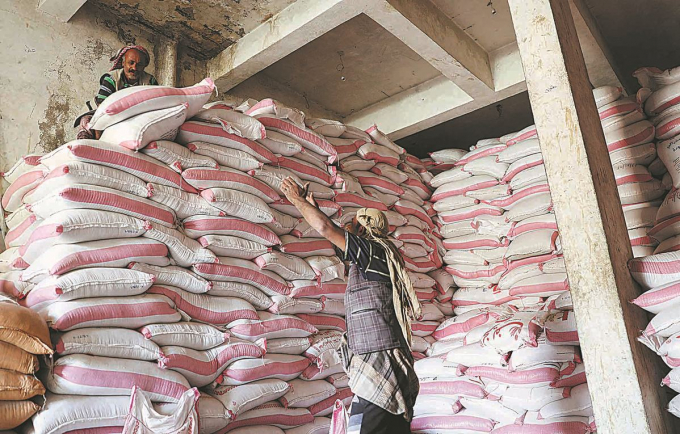
Workers handle sacks of wheat at a warehouse on May 17 in Sanaa, Yemen, which is faced with food insecurity. Photo: RT
Developing countries in Asia are moving to enhance food security in response to the rising prices of grains and farming materials that have compounded persistent shortages and the strains on vulnerable supply chains.
Speakers at a regional conference last week stressed the need for governments to support food producers as well as the importance of cooperation in the sector among nations.
At the Agritechnica Asia & Horti Asia 2022 held on May 25-27 in Thailand, Alongkorn Pollabutr, an adviser to Thailand's minister of agriculture and cooperatives, welcomed Vietnam's Deputy Agriculture and Rural Development Minister Tran Thanh Nam. Moves to expand cooperation between the Southeast Asian neighbors attracted much attention at the event.
Alongkorn, also chairman of the Thai Agritech and Innovation Center, said the two countries are keen to work together on food security and run cooperatives as well as provide training for farmers. While the two sides work out the details, Thai Minister of Agriculture and Cooperatives Chalermchai Srion is expected to visit Vietnam later, according to The Nation newspaper.
Sayamol Charoenratana, the head of the Human Security and Equity Research Unit and a researcher at the Chulalongkorn University Social Science Research Institute, said Thailand can contribute to the global food supply given that the major food exporter has always branded itself as the kitchen of the world.
While regional governments look to increase food production, Sayamol said it is important to support the food producers by providing them with more food sovereignty, or the power in the food system. The researcher said this need was evident because farmers usually gain only a small share of the profits while the middlemen that sell the products overseas take the larger chunk.
The steady climb in food prices over recent months is continuing as the conflict and sanctions imposed by Western nations on Russia make it difficult for Russia and Ukraine to export grain, among other farm products. Developing countries in Asia, many with large populations, have been forced to respond quickly.
India, the world's second-largest wheat grower after China, banned wheat exports in mid-May after huge crop losses due to a heat wave that began in March. India is also the biggest producer of sugar and the second-largest exporter of the commodity after Brazil. On Wednesday, the country begins restricting sugar exports, in the first such move in four years, to maintain "domestic availability and price stability of sugar", according to earlier government announcements.
India's actions follow Pakistan's imposition in May of a ban on sugar exports. Motivated by concerns for the home market, Indonesia banned the export of crude palm oil on April 28 but lifted the ban on May 23 after the country brought domestic cooking oil prices and supply under control.
Singapore has had to contend with its own concerns. The taste of fresh chicken meat has long been prized in one of the world's most livable cities. But, from Wednesday, people will have to go without the treat following an export ban by Malaysia, in one of the latest Asian responses to the global food crisis stemming from the COVID-19 pandemic and Western sanctions on Russia.
Malaysia announced on May 23 that it will halt the export of up to 3.6 million chickens a month from June 1, as part of measures to address a domestic supply shortage and stabilize prices. Globally, chicken prices have risen since the Russia-Ukraine conflict started in February.
Malaysia's move will hit Singapore hard-about a third of the city-state's chicken supply comes from across the border. The Singapore Food Agency issued a statement in which it encouraged consumers to switch to frozen chicken and buy only what they need.
"Since early April, many Asian countries have started to feel supply chain disruptions. And the prices of simple items like shallots have spiked," said Paul Teng, an adjunct senior fellow with the Centre for Non-Traditional Security Studies at the S. Rajaratnam School of International Studies in Singapore's Nanyang Technological University.
Teng said poor consumers are being affected by price increases in many food items, forcing them to reduce their purchases.
While trade restrictions can be effective in the short term, Tung Duc Phung, the director of the Mekong Development Research Institute in Hanoi, said they can harm the supply side in the long term and even slow economic growth.
"The most important measures these countries need (are) to promote the expanding of agriculture by supporting policies to attract more investment," Phung told China Daily.
Marcel Schroder, an economist at the Asian Development Bank, notes the worrisome trend of increased trade restrictions around the world. Since the beginning of the Ukraine crisis, more than 50 instances of trade restrictions have been introduced globally, meaning that export and import controls now apply to more than 20 percent of world trade, Schroder said.
"These measures have worsened price pressures in agricultural commodities markets, which in turn may trigger a vicious cycle of more trade restrictions over food supply concerns by other countries and further price increases," Schroder said.
Russia and Ukraine are also key exporters of sunflower oil and barley, contributing more than three-fourths and one-third of supplies to international markets, respectively. In addition, Russia is the world's biggest exporter of fertilizers. But production of those commodities in the two countries, along with exports, has largely come to a halt.
The Kremlin said on May 23 that Russia is not the cause of the food supply problems. Rather, those countries that have imposed sanctions against it are to blame, for the effects of those measures.
United Nations Secretary-General Antonio Guterres warned that tens of millions of people may suffer in a looming crisis that could last years.
"In the past year, global food prices have risen by nearly one-third, fertilizer by more than half, and oil prices by almost two-thirds," said Guterres, noting most developing countries lack the fiscal space to cushion the blow of these huge increases.
Supply of fertilizers
If high fertilizer prices continue, the current crisis in grain and cooking oil supplies could affect many other foods including rice, affecting billions of people in Asia and the Americas, said Guterres.
Any disruption to the supply of key commodities like wheat, maize and fertilizers due to the conflict can affect food security in the rest of the world, including developing Asia, said Schroder from the ADB, adding that food supply is also affected by natural gas and crude oil markets, because Russia is a major exporter of these commodities.
"The danger is that a prolonged fertilizer crisis in the form of high costs or outright unavailability has a big negative impact on crop yields which could threaten food security in developing Asia and beyond," said Schroder.
This is particularly true as many countries in Asia rely on agriculture and need chemical fertilizers, according to Sayamol in Bangkok.
In Thailand, around 10 million of the total 70 million population work in the agricultural industry, and the use of chemical fertilizers is a common practice, she said, noting that Thailand imports about 5 million tons of fertilizer a year from countries including China, Canada and Russia.
"At this moment, the price of fertilizers has risen around 30 percent… so (this has) an impact on the cost for the farmers," Sayamol said.
On the consumer side, the price of instant noodles, which used to be about 5 baht (15 cents) a bag, has increased for the first time in 14 years, by 1 baht, said Sayamol. She said the increase, though it may seem small, can make it difficult for people, especially the poor, to fill their stomachs.
Cambodia, a net importer of oil and gas, also has been suffering as a result of the Russia-Ukraine conflict as the rising prices have raised input prices, including farm gate and processing costs, said Sok Piseth, a research associate of the Cambodia Development Resource Institute.
The cost of transporting agricultural products from farms to border checkpoints and seaports for export is also likely to be affected, said Sok, who expects the prices of agricultural products from Cambodia to increase.
"This phenomenon reduces the competitive advantage of Cambodia's agricultural products compared with the neighboring countries," the researcher said.
Potential opportunities
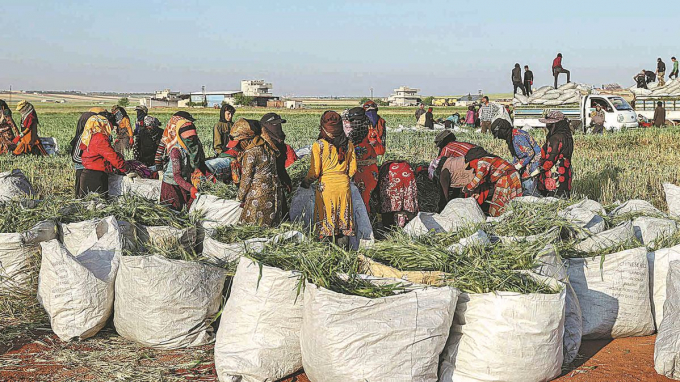
Workers gather up durum wheat on May 20 after the harvest in the Syrian town of Binnish in Idlib Province. Photo: AFP
In Southeast Asia, there is "an opportunity in the crisis in cooking oil", said Khor Yu Leng, research head for Southeast Asia at the Segi Enam Advisors consultancy in Singapore.
Khor said that palm oil exports can fill the gap when other vegetable oils like rapeseed oil and sunflower oil, of which Russia and Ukraine are key exporters, are in tight supply.
"My check of vessel movements from Indonesia shows a big rise in palm oil tankers going to the Commonwealth of Independent States (and) Russian region," said Khor, referring to a grouping of nations made up of former Soviet republics.
While Thailand, also a palm oil producer, pulled back on domestic use of the product in biodiesel to ensure food supplies, Malaysia and Indonesia are sticking to diverting it into domestic transport fuel with 20-30 percent biofuel blending mandates, said Khor.
The Thai Food Processors Association, quoted by the Bangkok Post on May 9, said Thailand's food exports are expected to grow 5 percent this year to 1.1 trillion baht, driven by the conflict and mounting concerns over food shortages in many countries.
Sayamol also said developing countries in Asia should increase the adoption of organic farming to reduce their dependence on chemical fertilizers.
On the other side of the coin, the ADB's Schroder said Thailand's fossil fuel import costs have risen to 6.4 percent of GDP-one of the highest in developing Asia-as oil prices reach around $100 per barrel.
Similarly, Vietnam is a food exporter but more than 40 percent of its total wheat imports come from Russia and Ukraine, said Schroder, noting the number of countries in developing Asia that can experience a net benefit from the conflict is likely to be limited to oil and gas exporters like Azerbaijan, Brunei and Malaysia. But they could also face downside risks as their exports may be jeopardized by the conflict.
Joining hands for solutions
Sok said regional countries should discuss ways to find solutions to the crisis, while supporting regional food security initiatives and promoting stability by lowering tariffs and nontariff barriers to sustain agricultural exports.
At a two-day meeting in Bangkok on May 21-22, trade officials and representatives from the Asia-Pacific Economic Cooperation economies expressed similar concerns over the still-fragile recovery from the pandemic in the region, including global supply chain disruptions, inflation, food and energy crises.
"We are concerned about the increase in food insecurity and hunger globally," said a chair's statement issued after the meeting of APEC Ministers Responsible for Trade meeting. It also reiterated the shared commitment shown in an initiative known as the APEC Food Security Roadmap Towards 2030 to help each other achieve food security, recognizing that a well-functioning food system is critical to people's health and well-being and to the success of the region's economies.
"We believe that there are many factors that affect food security, however, a free, open, fair, nondiscriminatory, transparent and predictable trade and investment environment can help support increased food security," said the statement, which also called for support from the World Trade Organization.
As natural resources like water are key to rice production in the Mekong region, Phung from the Mekong Development Research Institute said it is important for countries to cooperate on water management, especially relating to agricultural production and hydropower.
"They should also develop a mechanism like OPEC in order to obtain the maximum benefit from agriculture exports and then to ensure the food security for the region and Asia," said Phung, referring to the Organization of the Petroleum Exporting Countries, which was formed to coordinate and unify petroleum policies among member countries.
In May, Food and Agriculture Organization Director-General Qu Dongyu called on governments to "refrain from imposing export restrictions, which can exacerbate food price increases and undermine trust in global markets".
At 160 points, the FAO Food Price Index reached its highest level ever in March, and averaged 158.2 points in April.
Beyond Asia, Bart Edes, a distinguished fellow at the Asia Pacific Foundation of Canada, said East Africa is among the hardest-hit regions in the world due to the combined crises including the Russia-Ukraine conflict.
In Ethiopia, Kenya and Somalia, the number of people experiencing extreme hunger has soared from over 10 million to more than 23 million since last year, according to a report released by nongovernmental organizations Oxfam and Save the Children on May 17.
The Russia-Ukraine conflict "is compounding existing problems in the world's system for feeding people", Edes said.
(Chinadaily)
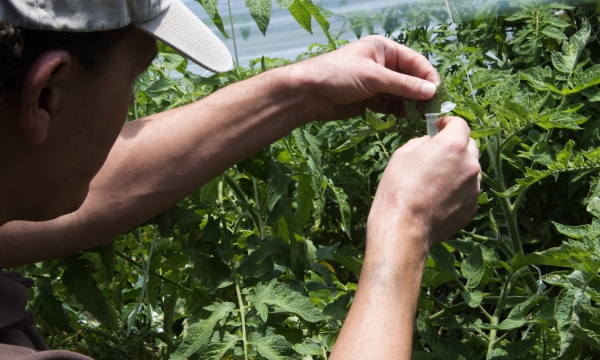
(VAN) Commission on Phytosanitary Measures “indispensable” amid changing weather patterns, FAO Director-General says.
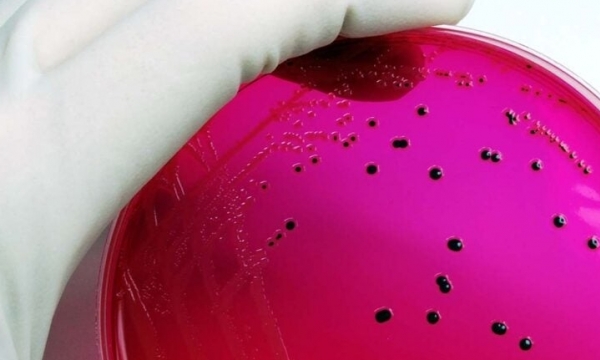
(VAN) The British Food Standards Agency (FSA) is worried about a renewed increase in the number of cases of Salmonella in poultry meat, poultry products and eggs from Poland.
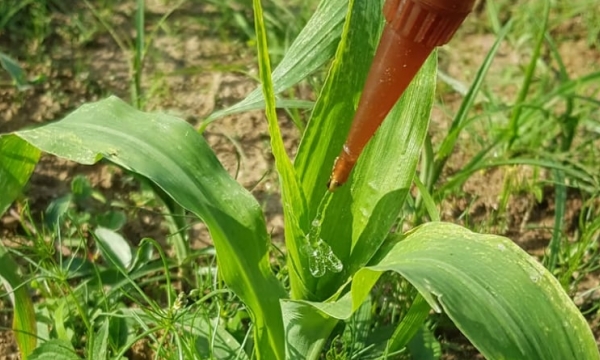
(VAN) A worm-filled gel has been shown to protect crops from pests, without the use of environmentally-unfriendly pesticides. Its not-so-secret ingredient is scores of tiny nematodes, which ordinarily can't survive outside of their underground habitat.
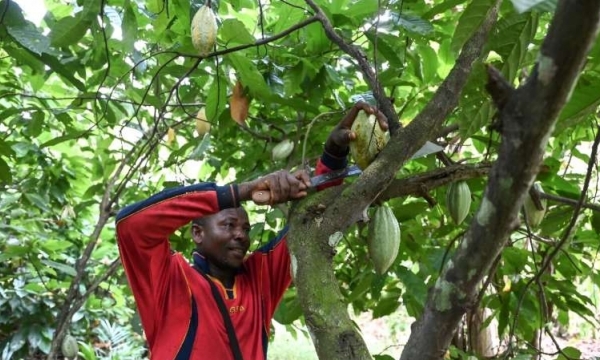
(VAN) It is so hot Yapi can work only in the morning, leaving plenty of spare time to dwell on his losses.
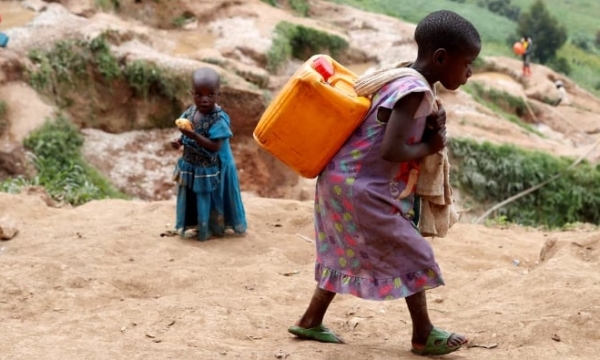
(VAN) The differential between per capita income growth in the poorest countries and the richest has widened over the past five years, according to the report.
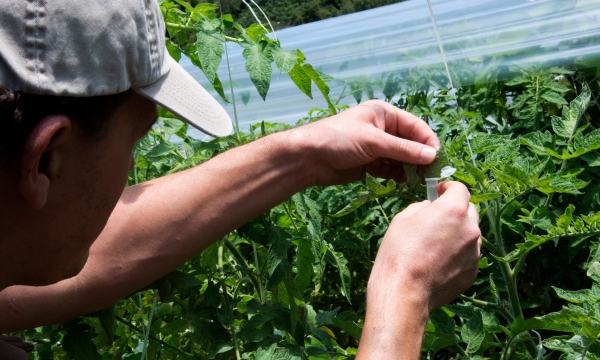
(VAN) Commission on Phytosanitary Measures 'indispensable' amid changing weather patterns, FAO Director-General says.

(VAN) The Vietnam - Japan Cultural Festival and Yosakoi Vietnam Festival 2024 took place vibrantly and attractively in Hanoi on April 13-14.